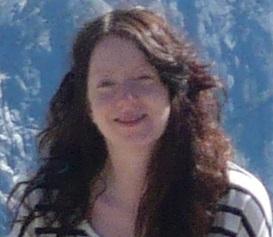Finishing studying…and starting again
Getting back into academic study can be a difficult decision. A postgraduate researcher guides you through her own experience and thought process.
- Admissions
- Careers
Share
Straight after I finished my psychology undergraduate degree, I knew exactly what I wanted to do: travel and work. As much as I enjoyed full-time study, I had reached what psychologists might term “saturation” and I couldn’t wait to have the independence associated with exploring the world and earning my own pay packet. Ten years on, I’m back in full-time education as a PhD student and discovering the cheapest brands of dried noodles and baked beans again. So…what happened?
I did travel and I did work. I travelled to India, Peru and the Galapagos Islands. Then I spent two years working for an autism charity and a further two years working in a psychiatric hospital. I never thought that I’d be doing a PhD. I didn’t really know what one was (I’m still finding out) and the thought of spending hours alone in a lab or in front of a computer screen was completely unappealing. I wanted to discover the world by experience rather than learn about it from theory. But somewhere along the way I realised that I couldn’t quite distinguish between the two.
I needed my degree to understand my clients (who I worked with) but then my clients challenged everything that I had learned in lectures and textbooks. I just didn’t know enough – and I missed the reading and learning that comes with the structure of a university. I decided to start saving for a master’s course and began a job search for research jobs in universities.
I enjoyed my master’s although it was hard work balancing full-time study with my new part-time paid research job. But the combination of the two inevitably lead on to further questions and ideas. A couple of PhD students openly encouraged me to try applying for PhD courses but I realised that I only knew two things:
1. I wanted to find out stuff.
2. I was broke – and aren’t PhDs really expensive?
There was only one way to find out and so I entered the unknown and put my trust in my ideas. I was interested in social inclusion (hugely fuzzy) and what could be defined accurately as a “disorder”. I searched online and made a list of all the lecturers and researchers in London who I thought had interesting projects running and emailed them. I met some of them for lunch, over coffee or in their offices and gradually my ideas started to form into a study – perhaps an idea that could be tested.
Applying for funding was slow and time-consuming but there are studentships out there (and no, you don’t necessarily need to have a double first). But here are some other things that I wish I’d known:
- Hang on and hold out for opportunities:
You never know what might come up and after 18 months of hunting for funding I was offered two PhD studentships. If you think that you are on to something, stick with the trail and see where it leads. Keep going!
- Never underestimate voluntary work/extracurricular activities:
I was hired for a three-year paid research job at University College London because I had picked up a specific skill (administering intelligence assessments) from a voluntary research job.
- Talk to people and turn up to public lectures and seminars:
Sometimes people can give you insider information that just can’t be picked up from reading or searching online.
- Think about what you really want:
A PhD usually lasts three years full-time and six years part time and that’s a long time if you’re not happy. Why would you think about doing one? Is it because you have a burning desire to tick the “Dr” box on credit card applications or do you feel genuinely excited by discovering new ideas?
Of course, the PhD is only part of an education journey and I learned so much from work and travel that it’s all only starting to assimilate now. But I think that the most important thing is to draw your own route and start your own journey of discovery. Who knows where it might lead? You might even surprise yourself.
Lisa is a PhD student and Associate Lecturer at Goldsmiths, University of London. She has previously worked within small charities and non-profit organisations as well as the NHS. She likes reading, writing, running and exploring. Find out more here: https://thedockeryexpress.wordpress.com/ and on Twitter: @lisadockerygold.
